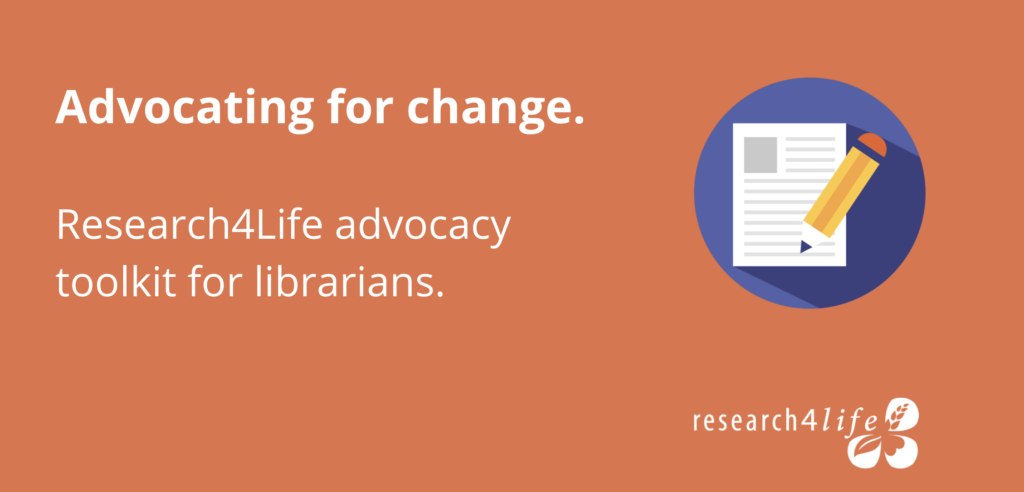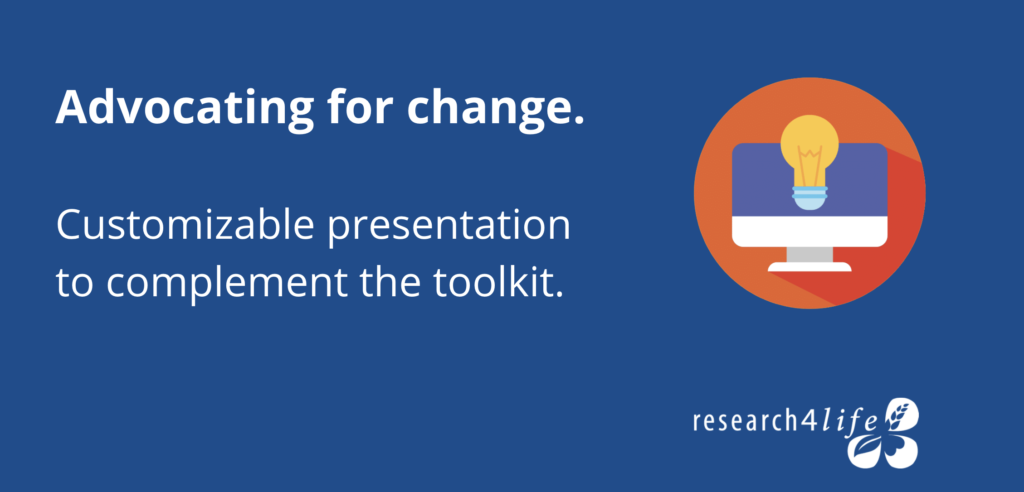Librarians hub
On this page, you will find resources that were specifically developed for information specialists, from presentations that you can use to train Research4Life users to exercises on creating a marketing plan for your library. Looking for marketing material to use in your institution? Check our resources.
Training and information literacy

Do you want to give a training on how to use Research4Life at your institution? Download our presentations on everything from logging into Research4Life to tips for searching discipline-specific information. Our workshop plan tool will help you create an outline for your workshop.
Learn about information literacy for researchers
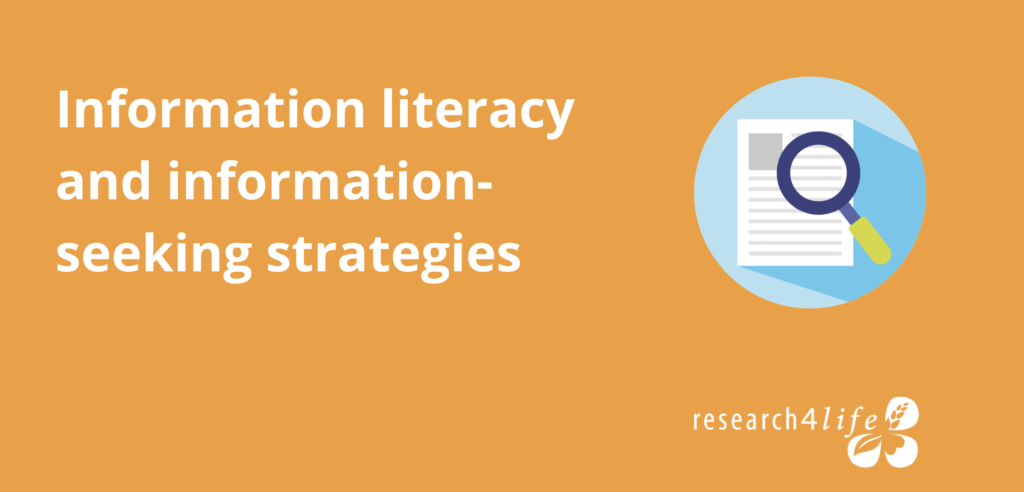
Information literacy means knowing when and why you need information, where to find it, and how to evaluate, use, and communicate it in an ethical manner. This PowerPoint presentation explains the concept of information literacy and dives deeper into information-seeking strategies. Exercises are included.
Promotion, advocacy and marketing
Get support for your library with our Advocacy Toolkit
Advocacy is an effective way to deliver your library’s message to a wider audience and to help librarians become part of larger organizational, local, regional, or national conversations. This toolkit explains basic mechanisms to advocate for Research4Life and other resources. Did you download the Advocacy Toolkit guidebook or presentation? Please take our quick survey to help us improve it!
Promote your library with a successful marketing plan
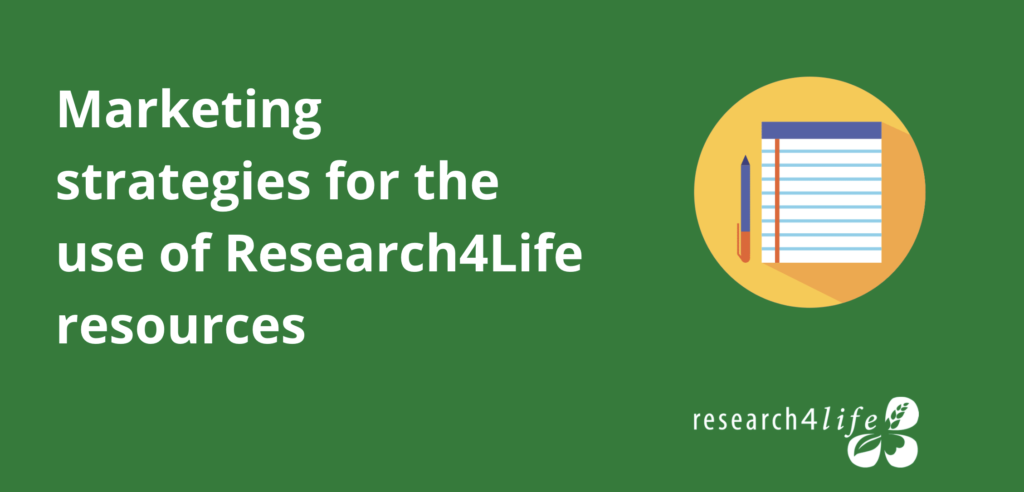
Our PowerPoint presentation and workbook include tips about marketing to educate and inform users at your institution about the full potential of Research4Life and its resources. You will also learn how to develop and implement a marketing plan.
Discover how to implement Research4Life at your institution
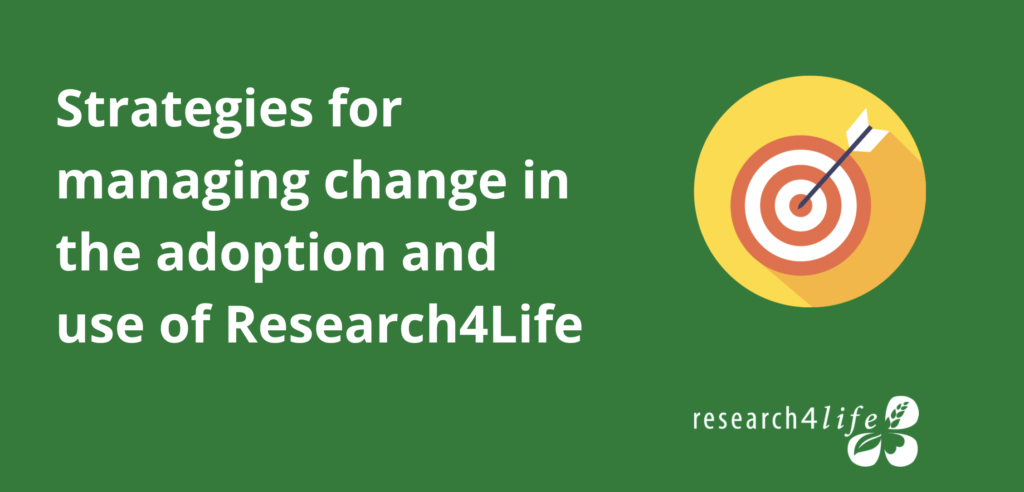
How changes and innovations are implemented in an organization is critical for the successful introduction of new information resources. This module reviews several models and concepts for managing change and gives strategies on how to apply these methodologies to an institutional setting regarding the adoption of Research4Life.
Training presentations
Below you will find up-to-date presentations about Research4Life and scholarly communications in general. These can be used by Research4Life trainers (librarians, information professionals, lecturers etc.) in face-to-face or online training activities or presentations. However, they can also be useful for others wanting to learn more about Research4Life.
These presentations build on the material for the Research4Life Massive Open Online Course (MOOC).
The lessons cover essential information for the participants to develop the skills to efficiently and effectively use the Research4Life Content Portal and its resources. Many of the lessons are inter-disciplinary, while some focus on specific disciplines.
The format of each lesson is a PowerPoint presentation that can be downloaded and edited. Individual courses can be developed depending on the participants skills and information needs. Last updated – September 2024.
1: Scholarly communication and Research4Life
- Scientific landscape: English ↓ | French ↓ | Spanish ↓ | Russian ↓ | Arabic ↓
- Research assessment and bibliometrics: English ↓ | French ↓ | Spanish ↓ | Russian ↓ | Arabic ↓
- Research4Life: English ↓ | French ↓ | Spanish ↓ | Russian ↓ | Arabic ↓
2: Discovery and re-use of scholarly literature
- Identifying information sources: English ↓ | French ↓ | Spanish ↓ | Russian ↓ | Arabic ↓
- Using information resources: English ↓ | French ↓ | Spanish ↓ | Russian ↓ | Arabic ↓
- Copyright, licensing and ethical considerations: English ↓ | French ↓ | Spanish ↓ | Russian ↓ | Arabic ↓
- Citing, reference management and collaboration tools: English ↓ | French ↓ | Spanish ↓ | Russian ↓ | Arabic ↓
3: Collection-specific browsing and searching
- Research4Life Unified Content Portal: English ↓ | French ↓ | ↓ Spanish | Russian ↓ | Arabic ↓
- Search across Research4Life collections using Summon: English ↓ | French ↓ | Spanish ↓ | Portuguese ↓ | Russian ↓ | Arabic ↓
- Research assessment tools: English ↓ | French ↓ | Spanish↓ | Portuguese ↓ | Russian ↓ | Arabic ↓
4: Additional discipline-specific resources
- Health sciences: English ↓ | French ↓ | Spanish ↓ |Portuguese ↓ | Russian ↓ | Arabic ↓
- Evidence-based medicine: English ↓ | French ↓ | Spanish ↓ | Portuguese ↓ | Russian ↓ | Arabic ↓
- Agriculture: English ↓ | French ↓ | Spanish ↓ | Russian ↓ | Arabic ↓
- Environment: English ↓ | French ↓ | Spanish↓ | Russian ↓ | Arabic ↓
- Development and innovation: English ↓ | French ↓ | Spanish ↓ | Russian ↓ | Arabic ↓
- Global justice: English ↓ | French ↓ | Spanish ↓ | Russian ↓ | Arabic ↓
- Interdisciplinary resources: English ↓ | French ↓ | Portuguese ↓ | Russian ↓ | Arabic ↓
5: Dissemination of research output
- Writing for research: English | French ↓| Spanish ↓ | Russian ↓ | Arabic ↓
- Publishing a research article: English | French ↓ | Spanish ↓ | Russian ↓ | Arabic ↓
6: Advocate on Research4Life and facilitate capacity development
- Research4Life advocacy Toolkit: English ↓ | French ↓ | Spanish ↓ | Russian ↓ | Arabic ↓
- Training your audience on using Research4Life: English ↓ | French ↓ | Spanish ↓ | Russian ↓ | Arabic ↓
This material is licensed under a Creative Commons Attribution-ShareAlike 4.0 International License (CC BY-SA 4.0). The logos used in the course are exempt. This CC BY-SA 4.0 license allows trainers to modify and adapt the material for specific training purposes at the host institution to meet the group’s specific needs. By using the training material, individuals do not represent or are employed by Research4Life.
These presentations have been developed by the Information Training and Outreach Centre for Africa (ITOCA) with support from the Research4Life Capacity Development Committee and funded by Research4Life and the Food and Agriculture Organization of the United Nations.

